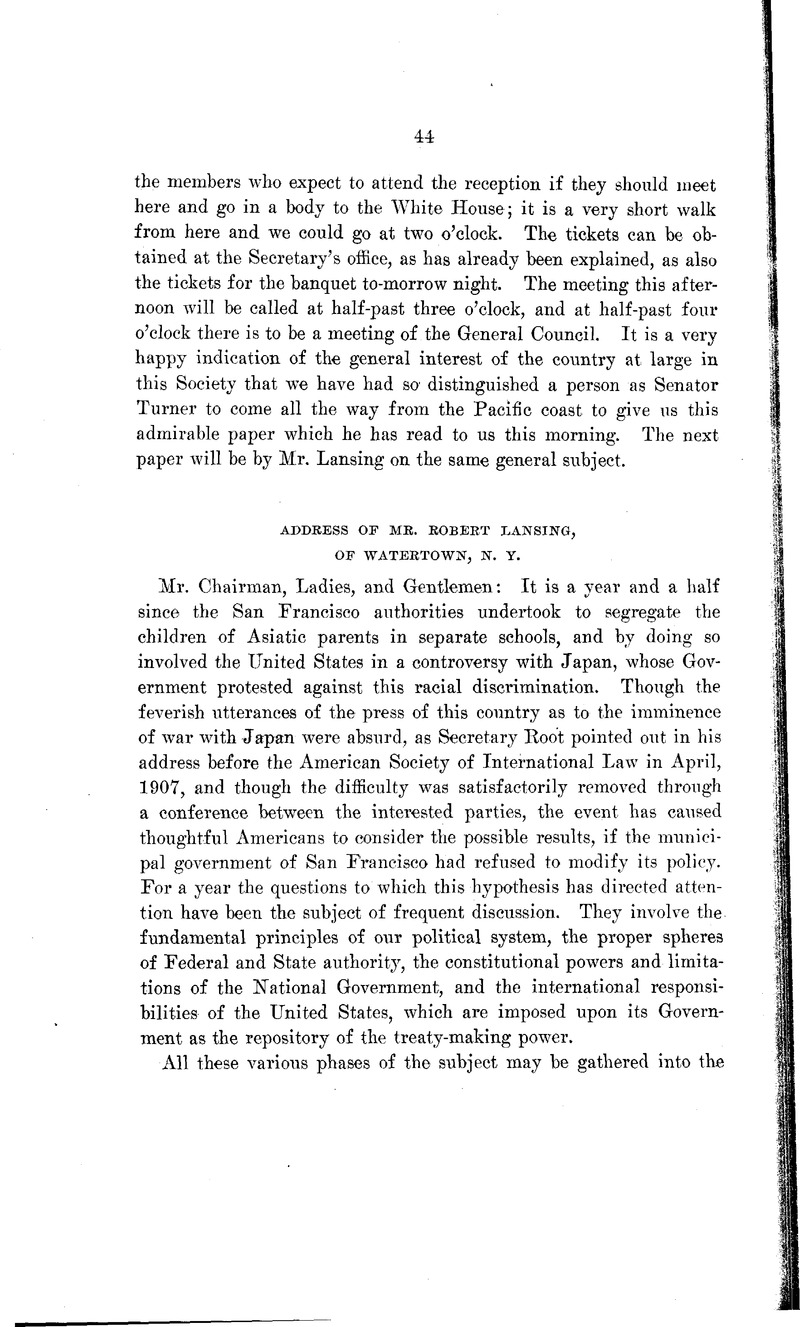No CrossRef data available.
Published online by Cambridge University Press: 27 February 2017

1 In the United States v. Hudson, 7 Cranch, 32, it is held that as there is no common law of crimes in our Federal jurisdictions an indictment will not lie in the absence of a statute for the violation of international law or of a treaty of the United States, notwithstanding that such violation of law or infraction of treaty rights may subject the United States to international reclamations. See also the opinion of Chief Justice Fuller in Baldwin v. Frank, 120 U. S., 678.
2 Foreign Relations, 1885, p. 212.
3 Moore, AA, International Law Digest, Vol. VI, p. 655.Google Scholar
4 Foreign Relations, 1895, pp. 1340–1447; ibid., 1896, pp. 880–898.
5 Foreign Relations, 1897, p. 592.
6 Foreign Relations, 1895, pp. 1257–1414; ibid., 1899, p. 766.
7 Moore, AA, International Law Digest, Vol. VI, pp. 794–795.Google Scholar
8 House Ex. Doc. Nos. 2 and 113, 32d Cong., 1st sess.; Cong. Globe, vol. 24, part 2, p. 2241.
9 Foreign Relations, 1881, p. 319.
10 Moore, AA, International Law Digest, Vol. VI, p. 663.Google Scholar
11 Foreign Relations, 1886, p. 158.
The doctrine maintained by the United States forced its Government to make some very fine-spun distinctions as to what constituted or did not constitute a ground for claiming national liability for the acts of local authorities. An excellent example of this sort is the case of William Scott Smyth, an American citizen, who in 1874 presented a claim against Brazil for damages arising out of mob violence. The facts were admitted, but the Brazilian Government denied its accountability for them on the ground that the Province where the wrong took place was alone answerable. In meeting this denial Secretary Pish said:
“ It is the Imperial Government at Rio Janeiro only which is accountable to this Government for any injury to the person or property of a citizen of the United States committed by the authorities of a Province. It is with that Government alone that we hold diplomatic intercourse. The same rule would be applicable to the case of a Brazilian subject, who, in this country, might be wronged by the authorities of a State.”
Had the Secretary of State stopped here the United States might have been freed from a position which has aroused the criticism of publicists and the complaint of foreign governments. But, following the suggestion of Mr. Webster, he continued:
“ There would, however, be this difference. In all our States, the authorities are chosen or appointed by the people or authorities thereof. The United States Government has no part in their election or appointment. In Brazil, however, the governors of the Provinces being appointed by the Imperial Government, the latter may be regarded as specially responsible for their acts in all cases where the law of nations may have been infringed and justice may be unattainable through the courts.” ( Moore, AA, International Law Digest, Vol. VI, pp. 815–816.Google Scholar)
The weakness of such an argument is apparent; and yet the United States has adhered to a policy which could only find a foundation On such sophistry and on such slender logic as Mr. Pish here employs.
12 Cong. Record, vol. 17, p. 5186.
13 Foreign Relations, 1891, pp. 665–713.
14 Foreign Relations, 1892, p. xiv.
15 Constitution, Article I, section 8, clause 10.
16 Foreign Relations, 1899, p. xxii.
17 Ibid., 1900, p. xxii.
18 33 Statutes at Large, p. 1032.
19 Cong. Record, vol. 23, part 5, p. 4551.